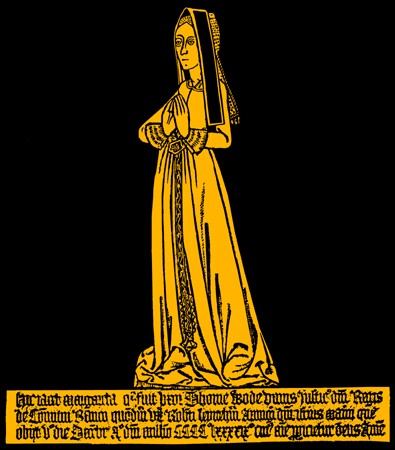 |
 |
|||
|
|
The family background of Thomas Wood (usually spelt 'Wode') is obscure, but he probably came from London or the Berkshire/Oxfordshire border, not Cambridgeshire, Suffolk or Cheshire as sometimes suggested. It is probable that his father was an elder Thomas Wood who sat on a Berkshire commission in 1473. He may also have been related to Walter Wood, a well-known fishmonger and citizen of the city of London. Through a process of elimination, Thomas is supposed to have gained his legal education at the Middle Temple (which is missing its list of benchers for the right period); and he possibly married a lady named Isabel as his first wife. He first appears in extant records as a jurer in Oxfordshire in 1470 and 1473. Also in the latter year, he appears as 'gentleman of London' and the legal year books have him as a counsel starting four years later. However, he had already been working as such for Winchester College from 1475 and continued with them for the next ten years. By 1478, Wood had made enough money to purchase an estate for himself at Childrey in Berkshire. In that year, he was appointed Justice of the Peace for the county, as well being elected MP for Wallingford.
Sir Richard Elyot, Queen Elizabeth (of York)'s attorney-general, was good friends with Wood and it was probably through him that the latter met this man's sister-in-law, Margaret Leynham. They were married shortly after her husband, Robert Leynham of Tidmarsh Manor, died on 5th April 1490. She was one of the younger daughters of Sir Thomas De la Mare of Aldermaston House and sister of Sir Richard's wife, Alice. Thomas had a single daughter, Anne (sometimes erroneously called Elizabeth), probably from his first marriage. She later married Sir Thomas Stukeley of Affeton Castle at West Wolrington in Devon. Stukeley was Thomas' ward, jointly with his friend, Sir Thomas Englefield of Englefield House. Margaret also had a son, Henry, from her previous marriage, whom Thomas seems to have been very fond of. On 24th November 1495, Wood was made one of the Puisne Justices of the Common Pleas and, on 28th October 1500, was promoted to the post of Chief Justice of the same court. He was then able to transfer his assize work to the home circuit, and he was knighted the following year. Wood's wife died on 5th December 1499 and was buried in Tidmarsh Church where her brass memorial can still be seen. After an unremarkable term as chief justice, Wood followed her to the grave just under three years later, on 31st August 1502. He was not buried with his wife, but chose to be interred at the entrance to the lady chapel of Reading Abbey instead.
|
|||
| © Nash Ford Publishing 2010 All Rights Reserved. | ||||



 Wood was called to the degree of the coif in 1486 and was made one of the King's sergeants-at-law on the same day as
Wood was called to the degree of the coif in 1486 and was made one of the King's sergeants-at-law on the same day as